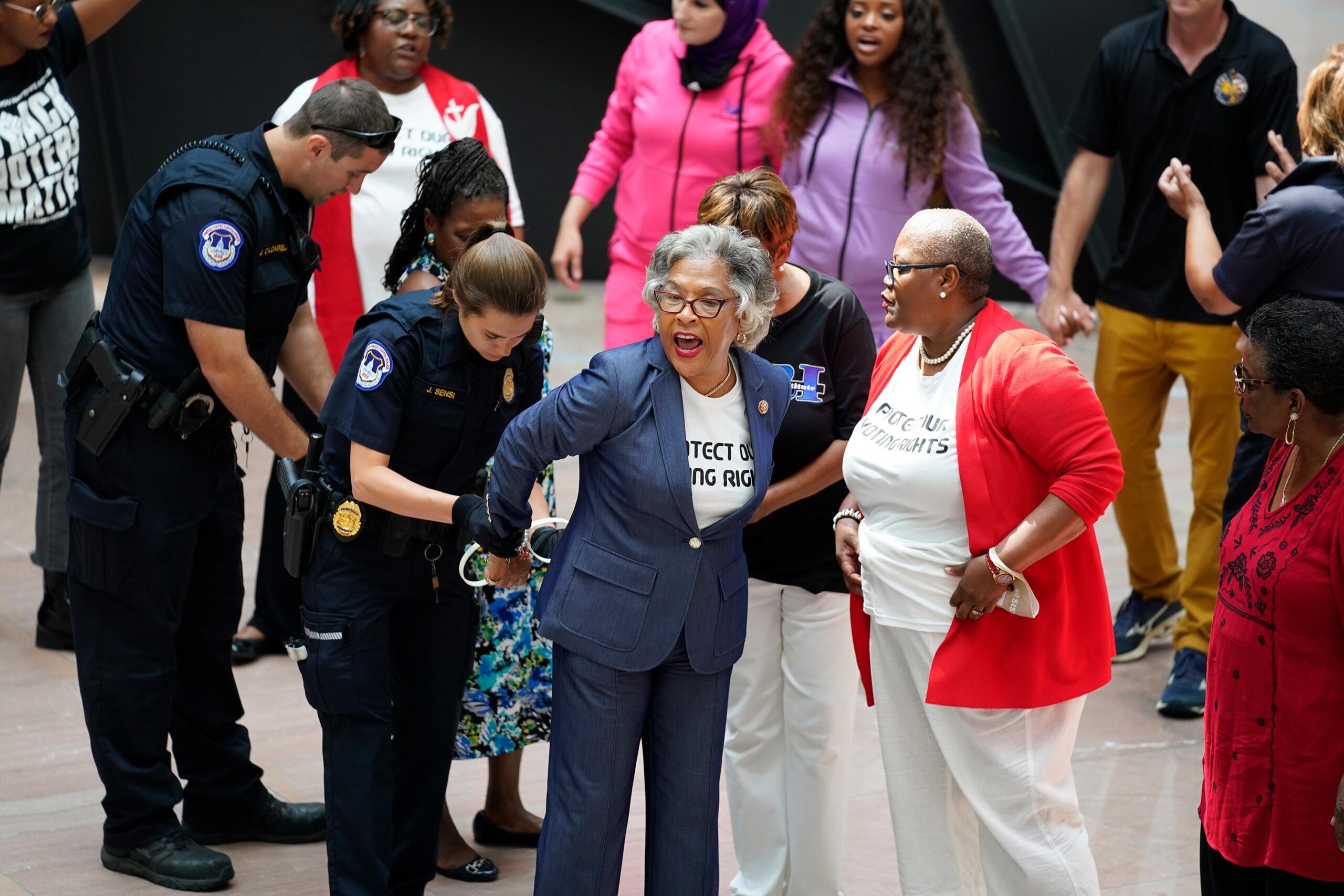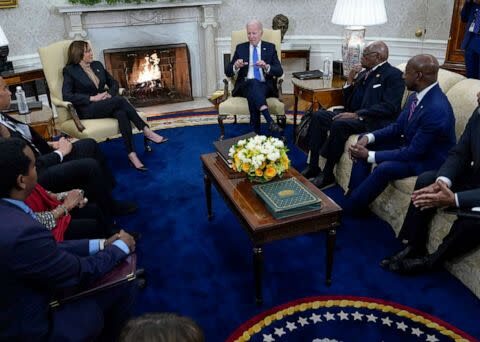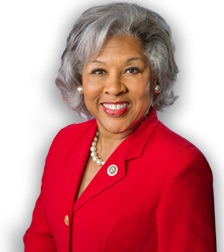Rep. Joyce Beatty was arrested by US Capitol Police on Thursday afternoon after participating in a voting rights protest that culminated in a march inside the Senate Hart Office Building atrium.
Beatty, the chair of the Congressional Black Caucus, participated in a small rally alongside 12 activists outside the Supreme Court building before marching to Hart, singing songs including “We Shall Overcome” and “This Little Light of Mine.”
After a warning from police to clear the area, Beatty was the first person arrested. Other members of the group were also arrested.
The Ohio Democrat shared photos of herself being zip-tied on her Twitter account with the caption, “Let the people vote. Fight for justice,” subsequently tweeting, “#GoodTrouble,” a reference to the late Rep. John Lewis, a Georgia Democrat who served as a civil rights icon for his 60-plus years of social activism.
“I stand in solidarity with the Black women and allies across the country in defense of our constitutional right to vote,” Beatty said in a statement posted to her Twitter account after her arrest. “We have come too far and fought too hard to see everything systematically dismantled and restricted by those who wish to silence us. Be assured that this is just the beginning. This is Our Power, Our Message.”
Thursday’s rally was part of an event called “Speak Out: Call to Action Day on Capitol Hill,” according to a release from Beatty’s office ahead of the protest.
Some of the demonstrators were wearing shirts saying, “Protect Our Voting Rights” and “Black Voters Matter.” Once they had entered Hart through the magnetometers and marched about halfway around the atrium, they stopped and chanted in favor of passing the For the People Act — a sweeping elections bill that Democrats hope will counter GOP efforts to curb voting rights in the states following the 2020 election.
The Democratic legislation passed the House earlier this year but was blocked by Republicans in the Senate in late June. Protesters also chanted, “End the filibuster.” Removing the legislative hurdle would allow Democrats to pass legislation in the chamber with a simple majority.





